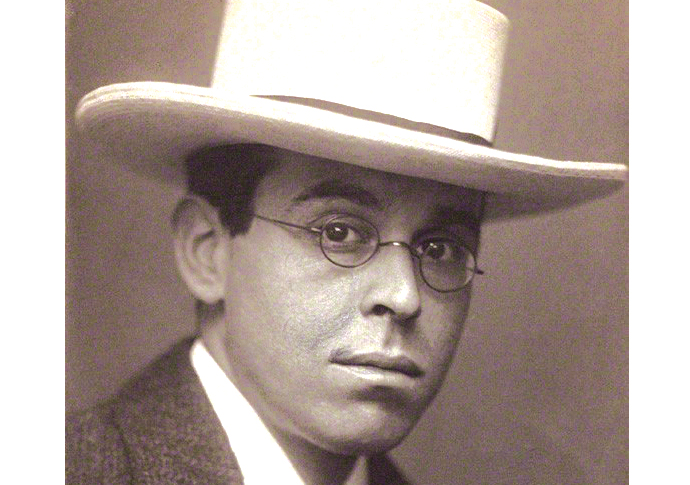Dry wit
In the latest in his series on eminent Camden Victorians, Neil Titley turns his attention to Sir William Rothenstein
Thursday, 22nd August 2024 — By Neil Titley

Sir William Rothenstein photographed by George Charles Beresford in 1907
SOME years ago, Bradford-born Sir David Hockney announced that he was moving to France so that he could continue to smoke cigarettes and paint in peace. Some 130 years previously, another native of Bradford had preceded him to France in pursuit of artistic inspiration and optional tobacco.
The son of a German-Jewish family, William Rothenstein (1872-1945) studied first at the Slade School in London and then in Paris where he was fortunate to be encouraged by the likes of Whistler and Degas. He said of this period of his life: “Like the rest, I was bewitched by that fascinating, overpowering siren, Paris!”
When he returned to London in 1893, Rothenstein specialised in portraiture – more than 200 of his pictures of the famous can be found in the National Portrait Gallery. He said that “vain men make the best sitters”. Five years later he co-founded the Carfax Gallery in St James.
As an artist working at the heart of the 1890s Decadent Movement in Paris and London and absorbed in the louche ambiance that flourished all around him, Rothenstein was exceptional in that he was teetotal. As alcohol gave him jaundice, he wasn’t able to join in the binges that surrounded him.
He became a (lemonade-sipping) habitué of The Crown pub in Charing Cross Road. This was a haunt of the artistic Decadents who shared the saloon bar with prostitutes, cabmen, and ballet girls from the nearby music halls. He made an odd barfly – the writer J-E Blanche reported that “Rothenstein had sometimes the severe manner of an Anglican clergyman”.
Rothenstein admitted: “I used to say that half my friends disapproved of me because I sat with wine bibbers, and the other half because I did not drink. I didn’t care for the poets’ cafés – they were too crowded and noisy; and though I could, on occasion, sit up most of the night, I was not a night owl. Oscar Wilde said of me that I was like those dreadful public houses in London – punctually at midnight all the lights went out of my face”.
When Rothenstein married a young actress called Alice Kingsley in 1899, he abandoned the epicurean world and to consolidate his conversion to respectability moved into 26 Church Row, Hampstead, an abode where alcohol was not served to guests. As a result his friend and fellow artist Augustus John was forced to drink at various pubs around Hampstead (notably the old King of Bohemia in the High Street) prior to arriving at the Rothenstein table.
After travelling to and painting in India in 1910, Rothenstein became a friend of the Bengali poet and Nobel Prize winner Rabindranath Tagore (in 1912 he installed Tagore at No 3 Villas in the Vale of Health for a few months).
One evening he held a dinner in Tagore’s honour. Rothenstein reported: “After dinner we asked Tagore to sing Bande Mataram, the Indian nationalist song. He hummed the tune but after the first words broke down. He could not remember the rest.
“Then WB Yeats began the Irish national anthem – and his memory also was at fault. Ernest Rhys could not for the life of him recollect the words of the Welsh national anthem. “What a crew!” I said – then I too forgot the words to God Save the King.’
In 1920, he became the principal of the Royal College of Art where he remained for 15 years. One of his pupils (another Yorkshireman) Henry Moore was later to write that Rothenstein “gave me the feeling that there was no barrier, no limit to what a young provincial student could get to be and do”.
In 1935, his policy at the college was challenged because Rothenstein wished to train artists rather than just produce designers for industry. Rothenstein said: “What an outcry there would be, and rightly, if I went to the British Museum and smashed a Grecian marble. But no one is scandalised when the spirit of promising artists is broken, and the nobler gifts become dependent on the caprice and diminishing chances of private patronage.” As a result, he was forced to resign his position.
In 1931, Rothenstein was given a knighthood by his great friend the British Labour PM Ramsay Macdonald (also a Camden resident who lived nearby at 9 Howitt Road in Belsize Park).
Rothenstein sometimes recounted an anecdote concerning his friend and again involving a social mishap concerning national anthems. At the end of a political visit to Rome, Macdonald was accompanied to the train station by the fascist dictator Benito Mussolini.
“As Ramsay was climbing up to his train compartment,” said Rothenstein, “the band struck up the British national anthem. He had to remain at attention, with one foot on the platform and the other up the three foot high running board while the band played God Save The King four times in succession, until Mussolini furiously signalled them to stop.”
• Adapted from Neil Titley’s book The Oscar Wilde World of Gossip. For details go to www.wildetheatre.co.uk
Details of new deluxe and revised American edition at uniexna.com